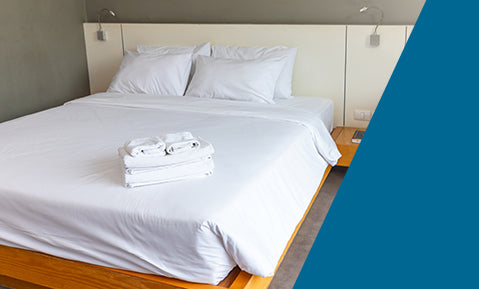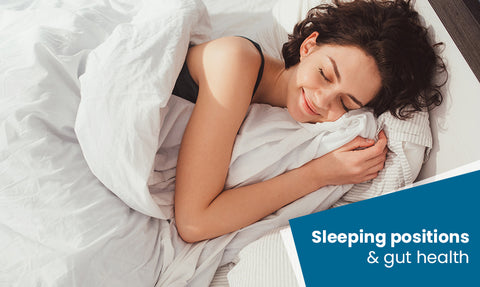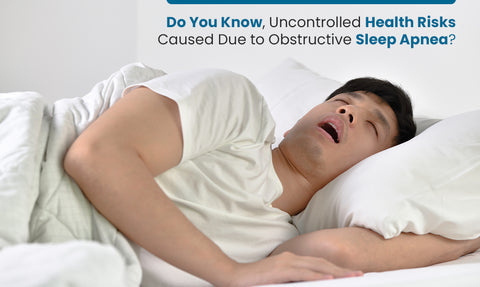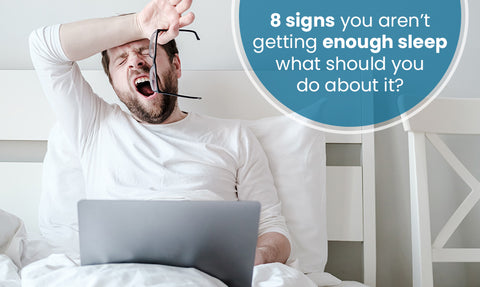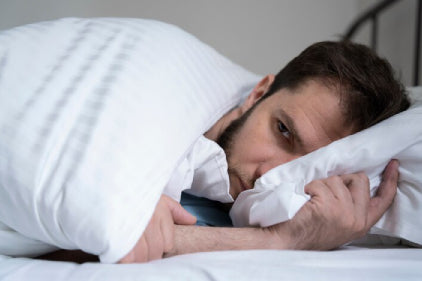
It is said that the best bridge between despair and hope is a good night’s sleep. As people say, a good night’s sleep is the cure of everything. But what if you were afraid of falling asleep itself? For some people, nightmares start once they fall asleep, but to those suffering from Somniphobia, sleep itself feels like their biggest nightmare. One that seems scary and distressing enough to even think about.
What is Somniphobia?
In layman’s terms, Somniphobia is the extreme fear of falling asleep. It might make you anxious and distressed as you think about going to sleep or as your bed time is approaching. Some experts refer to it as sleep phobia, hypnophobia and clinophobia. While many are able to avoid their phobias, one simply can’t avoid going to sleep and hence must face their phobia resulting in lasting consequences.
Symptoms of Somniphobia
Lack of sleep has been directly linked to increased health-related issues like obesity, diabetes, and heart diseases. Chronic sleep loss also affects one's daily life tremendously. Here are some of common symptoms caused by Somniphobia:
- Feeling a sense of dread and anxiety when thinking about sleeping.
- Experiencing a growing sense of fear and distress as it’s nearing bed time.
- Procrastinating going to bed for as long as possible.
- Having panic attacks when thinking about sleeping.
- According to the Sleep Foundation, some even experience this reaction around things that might represent sleep, like a mattress or a bed.
- Having poor judgement and reduced cognitive abilities.
- Experiencing mood swings, irritability and constant bouts of anxiety.
According to experts, those suffering from Somniphobia not only suffer from psychological but physical symptoms as well. One might experience nausea, tightness in their chest, rapid heartbeat, hyperventilation, chills and having a hard time breathing properly.
Although those suffering from Somniphobia are able to have a few hours of sleep, it is often restless and fitful leaving them even more exhausted. According to healthline, as a sort of coping technique “some people opt to leave on lights, a TV or music for distraction.” Others may turn to more severe and concerning distractions like drugs and alcohol to help them numb the constant fear.
Causes of Somniphobia
Although the exact cause of Somniphobia isn’t known, experts believe that sleep disorders might play a crucial role for inducing fear of sleep. Disorders like Sleep Paralysis and Nightmares may play a defining role in increasing this phobia.
The sleep disorders might be the result of a trauma that one has suffered in the past. Post-Traumatic Stress Disorder (PTSD) is a leading cause for a variety of disorders including the fear of sleep, as one might experience nightmares where they have to relive their most traumatic and stressful experiences and memories over and over again. Over time, such repeated nightmares and occurrences can induce a subconscious fear of falling asleep.
As one is especially vulnerable while they’re asleep, it is common for some people to experience fear of all the possibilities that might happen while they’re not awake and alert, such as a thief breaking into their house, an attempted burglary or murder. Some even worry that there might be an accidental fire or attempted arson that might kill them as they won’t be able to escape timely. A lot of older people might worry of passing away in sleep and hence develop a sense of fear of sleeping alone or sleeping at all.
So far there have been quite a lot of speculations and discussions about the possible cause of Somniphobia, however no definitive answer or cause has been found yet. It is entirely possible that one might develop the phobia of sleep without a serious cause too.
How to Diagnose Somniphobia?
Like with any health issue, if you believe you suffer from Somniphobia, it is best to consult a mental health professional as soon as possible. They are equipped with the best knowledge and tools to help and support you overcome your fear. If you feel like you resonate with the above stated symptoms then it is advisable to seek the help of a professional who will give you a detailed diagnosis and subsequent treatment as well.
How to treat it?
As sleep deprivation can lead to a lot of serious issues, it is better to seek help as soon as possible. The treatments may vary according to each person and their underlying causes, but for most cases, exposure therapy is quite effective. In exposure therapy you will be working with a therapist who will help you to gradually face your fear and subsequently overcome it over the course of several sessions.
The therapist will listen to your symptoms, will talk about its potential causes including any past trauma that might have resulted in you developing the phobia. Following that they will use relaxation techniques and guide you as they slowly help you through it. They might make you habitual with things involving sleep like bed, mattress and images of people sleeping to ease you through the treatment.
Medications
While there are no specific medicines for somniphobia, your therapist or doctor might recommend and prescribe certain medications that will reduce some of your symptoms.
- Beta Blockers such as propranolol or atenolol might help reduce symptoms of anxiety.
- Benzodiazepines such as alprazolam or lorazepam are sedatives that may help with short term symptoms.
However it is important and highly advisable to consult with your medical professional before ingesting these medicines. These medicines are addictive and you might also be allergic to some of its components. It is always better to seek professional help rather than risking your life by ingesting unprescribed medicines.
Conclusion
Somniphobia is an intense fear of sleep that will hinder your daily life as you will suffer from the constant fear of falling asleep and the resulting fatigue and exhaustion. It can cause both psychological and physical disorders for you ranging from anxiety and panic attacks to mood swings and decreased cognitive abilities. If you think you have this phobia, consulting a mental health professional and seeking treatment will be helpful.

